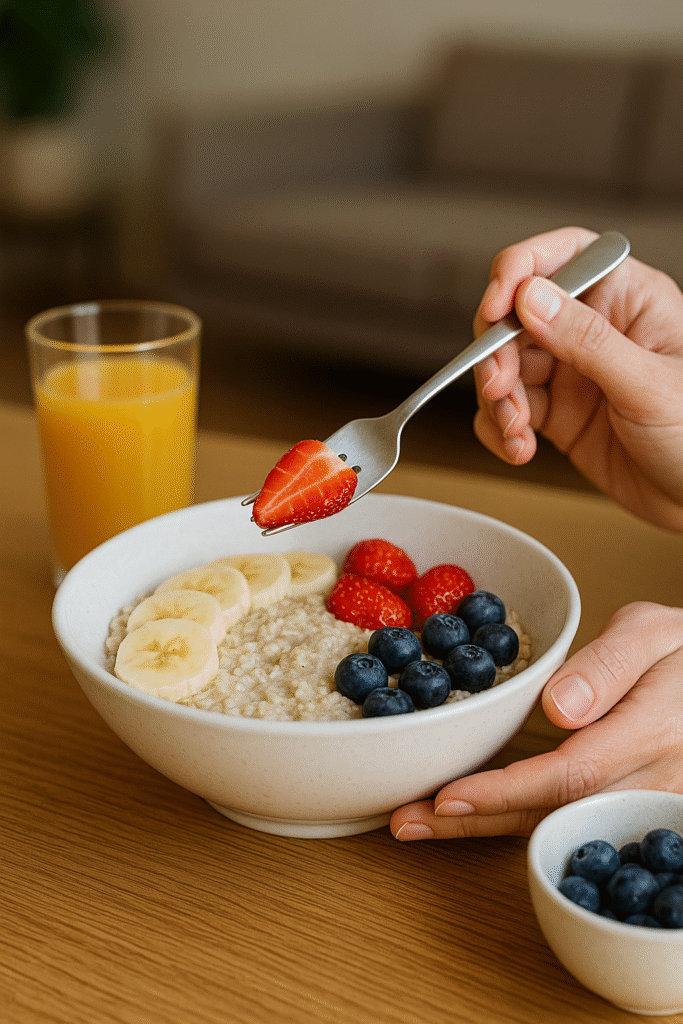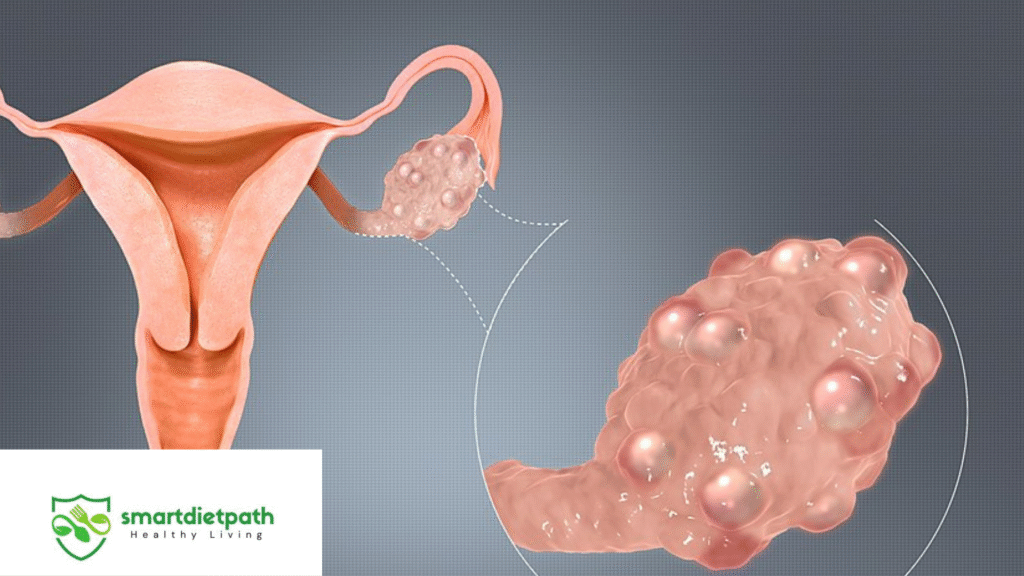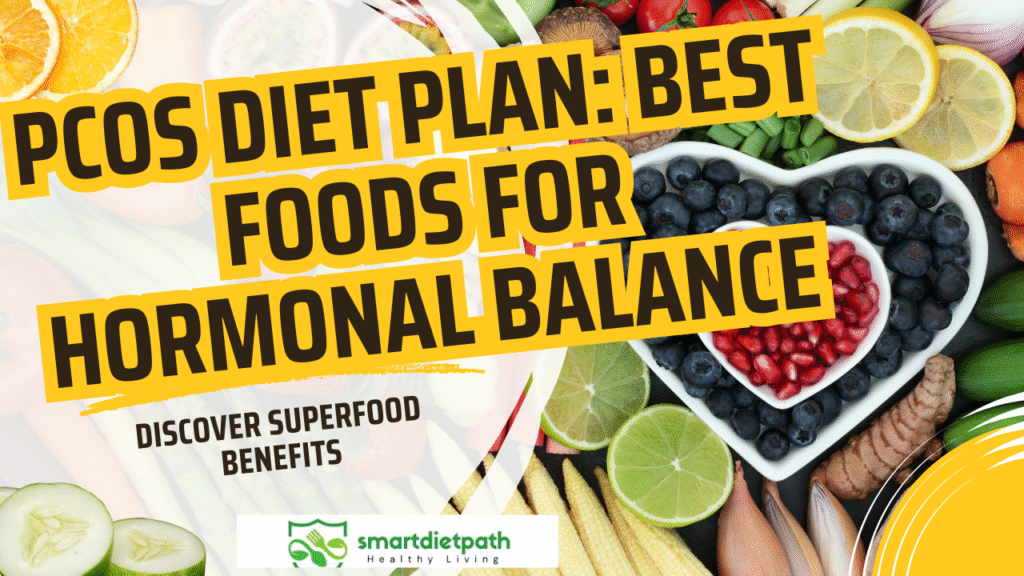Introduction: Reclaim Your Mornings with the Right Breakfast

Waking up with PCOS can feel like a daily battle against fatigue, cravings, and mood swings. If you’ve ever skipped breakfast or grabbed a sugary pastry on the go, you might have felt the dreaded energy crash by mid-morning. For women with Polycystic Ovary Syndrome (PCOS), breakfast isn’t just a meal—it’s a powerful tool to support hormonal balance, stabilize blood sugar, and set a positive tone for the entire day.
In this article, you’ll discover evidence-based, delicious, and easy-to-make PCOS breakfast ideas that are designed to work with your hormones, not against them.
Why Breakfast Matters in PCOS Management
Eating the right kind of breakfast is crucial for women with PCOS due to the interplay between:
- Insulin resistance
- Androgen levels
- Inflammation
A well-balanced breakfast can:
- Reduce sugar spikes and crashes
- Support weight management
- Improve mood and focus
- Enhance fertility and menstrual regularity
“What you eat first sets the tone for your hormones throughout the day.”
Let’s explore the ideal breakfast elements and practical meal ideas.
What Makes a Great PCOS-Friendly Breakfast?
A PCOS-friendly breakfast typically includes:
- High protein (15–25g per meal)
- Healthy fats (e.g., avocado, nuts, olive oil)
- Low glycemic index (GI) carbs (oats, berries, quinoa)
- Anti-inflammatory ingredients (chia seeds, turmeric, leafy greens)
Foods to Favor:
- Eggs (especially boiled or scrambled)
- Greek yogurt (unsweetened)
- Chia seed pudding
- Almond butter
- Whole grains like steel-cut oats
- Non-starchy vegetables (spinach, tomatoes)
Foods to Limit:
- Sugary cereals
- White bread or refined carbs
- Fruit juices and flavored yogurts
- Processed breakfast bars
Top 10 PCOS Breakfast Ideas for Hormonal Balance
1. Chia Seed Pudding with Almond Milk and Berries
- Rich in omega-3s and fiber
- Low glycemic index
2. Veggie Omelet with Spinach, Peppers, and Avocado
- High in protein
- Supports liver detox
3. Greek Yogurt Bowl with Walnuts and Flaxseed
- Gut-friendly probiotics
- Rich in healthy fats
4. Quinoa Porridge with Cinnamon and Blueberries
- Plant-based protein
- Anti-inflammatory
5. Smoothie with Protein Powder, Kale, and Chia Seeds
- Quick and portable
- Balances insulin response
6. Boiled Eggs with Sweet Potato Toast
- Fiber + protein combo
- Satiety boosting
7. Almond Flour Pancakes with Fresh Berries
- Grain-free option
- Naturally gluten-free
8. Avocado on Rye or Whole Grain Toast
- Loaded with potassium and good fats
- Keeps blood sugar steady
9. Tofu Scramble with Nutritional Yeast and Veggies
- Vegan and high in protein
- Hormone-friendly
10. Overnight Oats with Chia and Pumpkin Seeds
- Rich in zinc and magnesium
- Improves hormonal metabolism
Comparison Table: PCOS-Friendly vs. Traditional Breakfasts
| Meal Type | Calories | Sugar | Protein | Fiber | Glycemic Load |
|---|---|---|---|---|---|
| Sugary Cereal + Milk | 320 | 22g | 6g | 2g | High |
| Chia Pudding + Berries | 280 | 7g | 10g | 10g | Low |
| Egg Omelet + Avocado | 300 | 2g | 18g | 5g | Low |
| Oats + Greek Yogurt + Nuts | 350 | 9g | 20g | 6g | Medium-Low |
Bonus Tips to Enhance Your PCOS Morning Routine

- Drink warm lemon water before breakfast to support digestion
- Meal prep breakfasts for the week to stay consistent
- Pair carbs with protein to avoid blood sugar spikes
- Include adaptogens like maca in smoothies (consult your doctor)
FAQ: PCOS and Breakfast
1. Can I eat carbs for breakfast with PCOS?
Yes, but choose low glycemic index carbs like oats, sweet potatoes, or berries. Always pair with protein.
According to Cleveland Clinic, a balanced diet low in processed carbs can help manage PCOS symptoms effectively.
2. Should I avoid dairy?
Not necessarily. Some women tolerate Greek yogurt and kefir well. Focus on unsweetened, high-protein versions.
3. Is intermittent fasting good for PCOS?
Some studies suggest it can help, but it depends on the individual. Don’t skip breakfast unless advised by your healthcare provider.
4. Are smoothies okay?
Yes—if balanced. Avoid fruit-only smoothies. Add protein, fats, and fiber-rich greens.
5. What’s the best time to eat breakfast?
Within 90 minutes of waking up to support metabolism and cortisol regulation.
Conclusion: Start Your Day with Intention
Managing PCOS starts with small, consistent choices—starting with your plate. A thoughtful, nutrient-dense breakfast isn’t just fuel; it’s your daily hormonal support system. Whether you love savory or sweet, quick or cooked, you now have 10+ powerful options to start your day with balance, energy, and control.
Try one of the PCOS breakfast ideas this week, and you might just feel the difference—physically, emotionally, and hormonally.
Mayo Clinic explains that lifestyle and dietary adjustments can significantly reduce the impact of hormonal imbalances in PCOS
Recommended Reads:
- PCOS Diet Plan: Best Foods for Hormonal Balance
- 7 Day Diet Plan for Weight Loss
- Healthy Meal Plan for Women with Type 2 Diabetes



